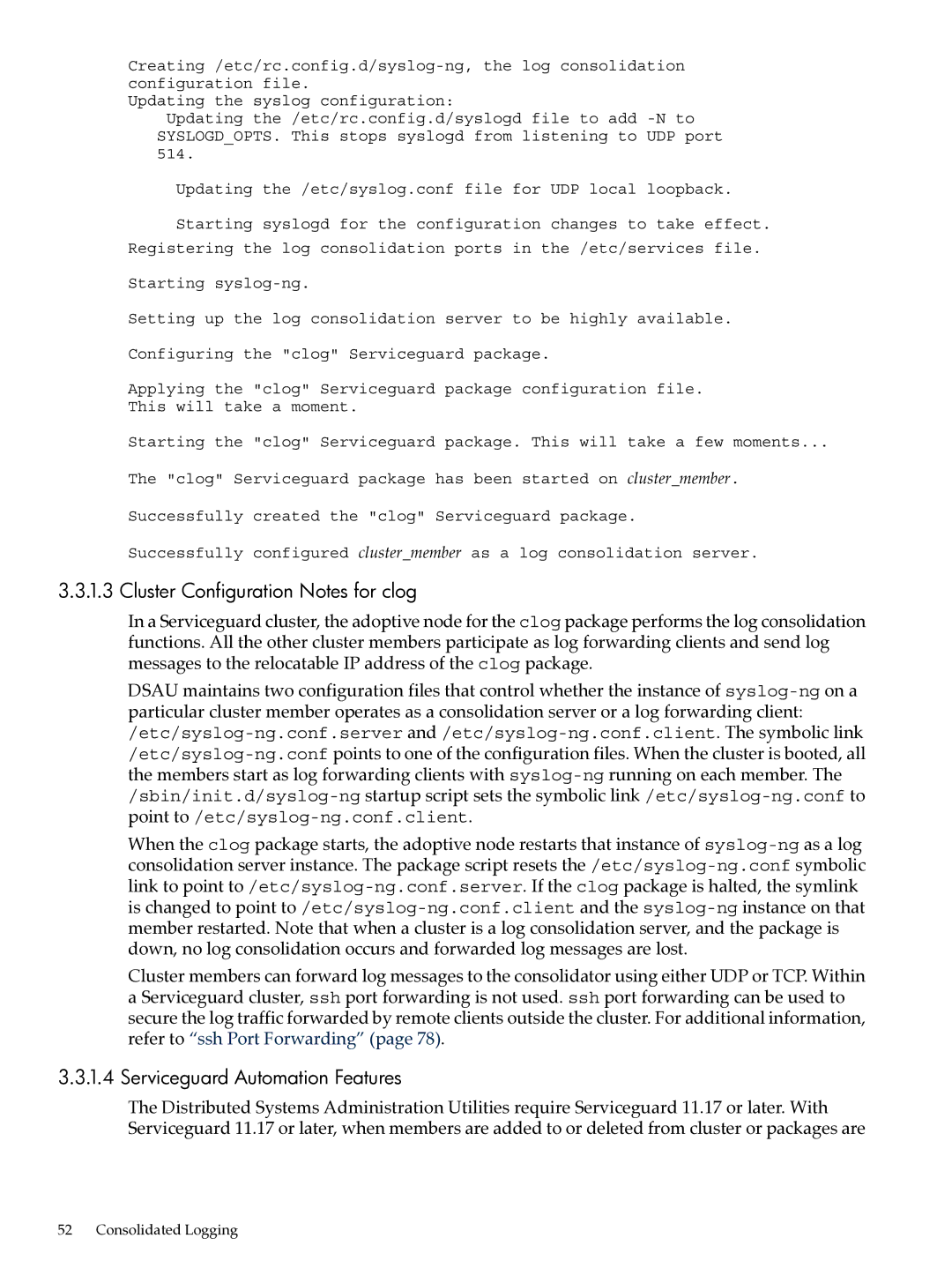Updating the syslog configuration:
Updating the /etc/rc.config.d/syslogd file to add
Updating the /etc/syslog.conf file for UDP local loopback.
Starting syslogd for the configuration changes to take effect.
Registering the log consolidation ports in the /etc/services file.
Starting
Setting up the log consolidation server to be highly available.
Configuring the "clog" Serviceguard package.
Applying the "clog" Serviceguard package configuration file.
This will take a moment.
Starting the "clog" Serviceguard package. This will take a few moments...
The "clog" Serviceguard package has been started on cluster_member.
Successfully created the "clog" Serviceguard package.
Successfully configured cluster_member as a log consolidation server.
3.3.1.3 Cluster Configuration Notes for clog
In a Serviceguard cluster, the adoptive node for the clog package performs the log consolidation functions. All the other cluster members participate as log forwarding clients and send log messages to the relocatable IP address of the clog package.
DSAU maintains two configuration files that control whether the instance of
When the clog package starts, the adoptive node restarts that instance of
Cluster members can forward log messages to the consolidator using either UDP or TCP. Within a Serviceguard cluster, ssh port forwarding is not used. ssh port forwarding can be used to secure the log traffic forwarded by remote clients outside the cluster. For additional information, refer to “ssh Port Forwarding” (page 78).
3.3.1.4 Serviceguard Automation Features
The Distributed Systems Administration Utilities require Serviceguard 11.17 or later. With Serviceguard 11.17 or later, when members are added to or deleted from cluster or packages are
52 Consolidated Logging
